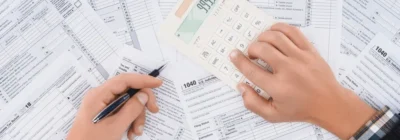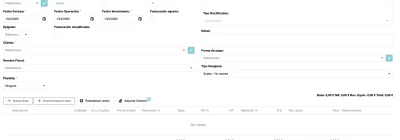Deductible expenses for the self-employed nowadays
Patrick Gordinne Perez2024-07-16T17:43:30+00:00The self-employed are responsible for managing their finances and tax returns. One of the key tools to optimise their tax burden is the deduction of certain expenses related to their economic activity, understanding what are deductible expenses and how to apply them correctly in the tax return can result in significant savings, in this post we analyse in depth what is a deductible expense, different types of deductible expenses for self-employed and how these expenses are applied in the tax return in Spain.
What is a deductible expense?
A deductible expense is one that can be subtracted from total income when calculating the tax base on which taxes are levied.
For an expense to be considered deductible, it must meet certain criteria established by tax regulations.
In general, a deductible expense must be directly related to the economic activity of the self-employed, be necessary for the development of that activity and be duly justified and documented.
These expenses allow the tax burden to be reduced, as they reduce the net profits on which taxes are calculated.
Common deductible expenses for the self-employed
Premises supplies and expenses
For freelancers working from an office or business premises, expenses related to the maintenance and operation of the space are deductible, including the rent of the premises, as well as electricity, water, gas and cleaning services. If the self-employed person works from home, he/she can deduct a proportional part of these expenses depending on the space in the home dedicated to the professional activity.
Office material and stationery
Office material necessary for the development of the economic activity, such as paper, pens, folders and other stationery, is also deductible. In addition, technological equipment such as computers, printers and mobile phones, provided that they are used exclusively for the professional activity, can be deducted.
Vehicles and transport expenses
Self-employed persons who use their vehicle for professional activities can deduct related expenses such as fuel, maintenance, insurance and vehicle depreciation. It is important to note that only the proportional part of the use of the vehicle for the professional activity can be deducted. In addition, public transport expenses, such as train or bus tickets, are deductible if they are work-related.
Per diems and travel expenses
Travel and subsistence expenses are also deductible if they are necessary for the economic activity of the self-employed, including accommodation, meals and transport costs during business trips. It is essential to keep receipts and receipts for these expenses and that they are clearly linked to the professional activity.
Training expenses
Continuous training is essential for many self-employed professionals. Expenses related to courses, seminars, and workshops that are relevant to the development of the economic activity are deductible, this includes both the cost of registration and the materials necessary for the training.
Insurance
Insurance related to the professional activity, such as liability insurance, health insurance and vehicle insurance, is deductible. These insurances protect the self-employed and their business against possible contingencies and are considered necessary expenses for the development of the economic activity.
Consultancy and professional services expenses
Fees paid to tax advisors, accountants, lawyers and other professionals are deductible. These services are essential for the correct management and fulfilment of the self-employed’s tax and legal obligations.
Advertising and marketing expenses
To attract clients and promote their services, freelancers often incur advertising and marketing expenses. These expenses, which include the creation of websites, social media advertising campaigns and promotional material, are deductible if they are related to the economic activity.
Depreciation of assets
Capital goods, such as machinery, technological equipment and furniture, are depreciated over their useful life. Depreciation is a deductible expense that allows the cost of these assets to be spread over several tax years, reflecting the depreciation of their value over time.
Declaration of expenditure
The self-employed must declare their income and expenses on the corresponding tax forms, such as form 130 (payment in instalments of personal income tax) and form 303 (quarterly VAT return).
In the annual personal income tax return (form 100), all income and deductions for the tax year must be included.
Deductible expenses are subtracted from income to calculate the taxable base on which taxes will be applied.
In the case of VAT, deductible expenses allow you to offset input VAT against output VAT, which can result in a lower amount to be paid, or even to claim a VAT refund.
At Asesoría Orihuela Costa we have the best team at your disposal, so that you can deduct all the expenses derived from your activity, contributing to the tax efficiency of your company.






